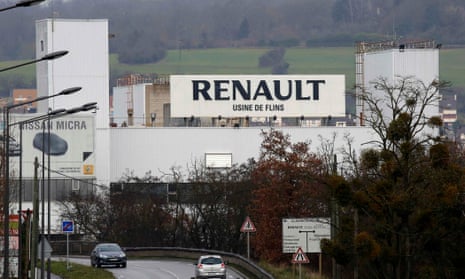Renault has recalled more than 15,000 diesel cars after an admission that its emissions filtering system does not work in all temperatures.
The French carmaker denied any wrongdoing and said there was no “defeat device” of the kind Volkswagen used to cheat emissions tests, but acknowledged there was a difference between its test results and actual pollution.
According to the French environment minister, Ségolène Royal, who established France’s commission to investigate vehicle emissions, the problem would require Renault to correct the filtration system on Renault Captur cars produced between July and September 2015, so that it continued to work in hot or cold weather.
Emissions tests for vehicle certification in Europe are conducted at an ambient temperature of between 20c and 30C (68F-86F).
Renault confirmed the recall, saying it involved a small proportion of Capturs produced before September 2015, when it identified and fixed the problem.
The carmaker’s director of engineering, Gaspar Gascon Abellan, told reporters that Renault had discovered “a calibration error” in the emissions-cutting system of its diesel engines, which meant nitrogen oxides and sulphur were not being properly eliminated.
The manufacturer has come under scrutiny since the revelation last week that anti-fraud investigators had raided its premises across France as inquiries continue into the actual emissions produced by its cars, which have been found to be substantially above test levels. The French government, which owns almost 20% of the company, moved to reassure investors after Renault shares fell sharply on fears that it would be drawn into the scandal engulfing VW, although the carmaker’s value remains 10% lower than when news broke.
Renault announced it was also planning a software upgrade to cut nitrogen oxides pollution from its diesel engines, in a move that could potentially affect up to 700,000 vehicles on the road. The voluntary upgrade would apply to owners of cars using the most modern Euro 6-compliant engines.
Campaigners have pointed to Renault as one of the major culprits in discrepancies between vehicle test results and real-world NOx emissions, as awareness has grown of the true level of pollution emitted by diesel cars. A German environmental group that tested Renault’s Espace in late 2015 said it released NOx emissions, which are linked to a host of public health problems from respiratory illnesses to heart disease, that were between 13 and 25 times the EU limit.
Renault’s chief competitive officer, Thierry Bolloré, said that while he disputed some of the reported measurements, he acknowledged that “our position is not satisfactory” and there was “room for improvement”. Bolloré insisted that Renault was “meeting the norms” rather than cheating tests or consumers.
The commission established by Royal has so far identified several manufacturers whose real-world emissions exceed the tests, but no evidence of defeat devices in vehicles beyond those used by VW.

Comments (…)
Sign in or create your Guardian account to join the discussion